Download the GWK Academy app to learn more about how you can become a dad
Decades-spanning couples reflect on how building a family made their own relationship stronger.
It takes hard work to maintain any loving long-term relationship. Every couple has ups and downs, but few will establish that rare rapport that can survive 10 years, 20 years, or a lifetime.
If you’ve managed to stay a steady course as a childless couple, you have to wonder: Will rocking a cradle wind up rocking the boat?
The answer is yes. Adding a child to your dynamic will assuredly make waves in any relationship. But as we spoke to men that started families after a particularly long time – following at least 10 years as a childless duo, for our purposes – a general consensus emerged. Having children has fortified, not weakened, these already strong bonds. They have enhanced, not diminished, longstanding relationships. And even if sex lives sometimes take a drubbing (come on, you were thinking it), most couples say that parenthood has actually added an entirely new level of intimacy.
Every couple is different, of course. But for long-term partners who are just now beginning to consider parenthood, there’s good news: Your best years may still be ahead of you.
Why We Wait
Gay men are having children. A lot. For instance, data from the 1990 US Census estimated that 5% of partnered gay men in America had children in their households. But a Census study from 2011 estimates that number has nearly tripled, to about 13.9%. (And that study relied on data from 2008. Expect numbers to continue to grow.)
There’s a good reason why many gay couples wait a while to become dads: It’s expensive. For most opposite-sex couples, conception will cost only as much as a bottle of good wine and a few tapered candles. But for same-sex couples, expenses typically mount well before the baby is born, whether they go through a form of adoption or surrogacy. So building a nest egg precedes building a family.
In fact, in a survey conducted by Gays With Kids among long-term couples, a whopping 67% of respondents indicated that “establishing finances” was one of the “most significant reasons” that they waited to have kids. Indeed, most of the couples did express interest in fathering fairly early on in their relationship – it just took many more years before wheels were in motion. On average, respondents first discussed parenthood with their partner at about 4.4 years into the relationship; they wouldn’t actually become dads, on average, until 12 years in.
“I had always pictured myself with a simple life: a ranch house with white picket fence, the old-fashioned portrait of a family,” says Jimmy, 48, from Calgary. And parenting seemed to come pretty naturally to him and his husband Greg. For a long time, he says with a chuckle, their home was a “destination for wayward boys in our family.”
“We had a reputation for ruling with an iron fist,” laughs Jimmy. “Ironically, we were looked at as being the most traditional couple. When our siblings’ teenage boys would have issues, they’d come to our house.”
Jimmy and Greg first discussed adoption about four years into their relationship, but wouldn’t wind up having a child until after more than 20 years together. Last year they assumed guardianship of their now 2-year-old son, who was born to Greg’s teenage stepsister with a history of drug issues and brushes with the law. They’ve more recently filed for adoption.

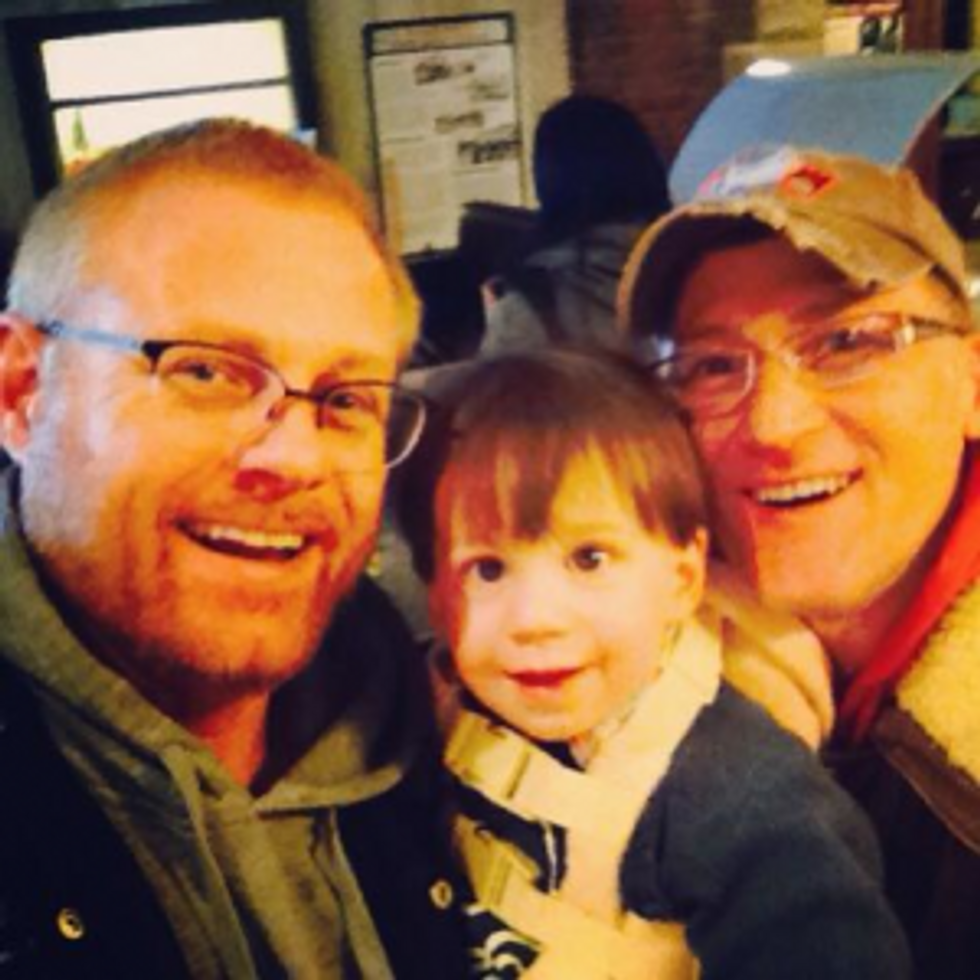
The situation made sense, and they were at a point when “we now have the income to do it,” says Jimmy. Greg is now able to be a stay-at-home dad, which was important to them.
Establishing a sustainable income was also part of the reason why David and Josh waited to become dads. But the Florida couple, together since 1997, can speak to another, less easily quantified reason why many gay men wait: It takes time to process the reality that yes, fatherhood can be in the cards.
“Josh is a dreamer. He’s always wanted to be a parent. But I’ve always been much more pragmatic,” explains David. “When I came to the realization that I was gay, with the state of affairs being what they were, I worked under the assumption that being a parent was unlikely. And I’m the kind of person who teaches myself not to wish for something I don’t reasonably expect to happen.”
Thanks to Josh’s ongoing, gentle nudging, dreams did come true. In 2007, they welcomed twin boys through a domestic surrogacy; last year, they welcomed twins (again!) through an international surrogacy. And that second go-round, incidentally, was David’s idea.
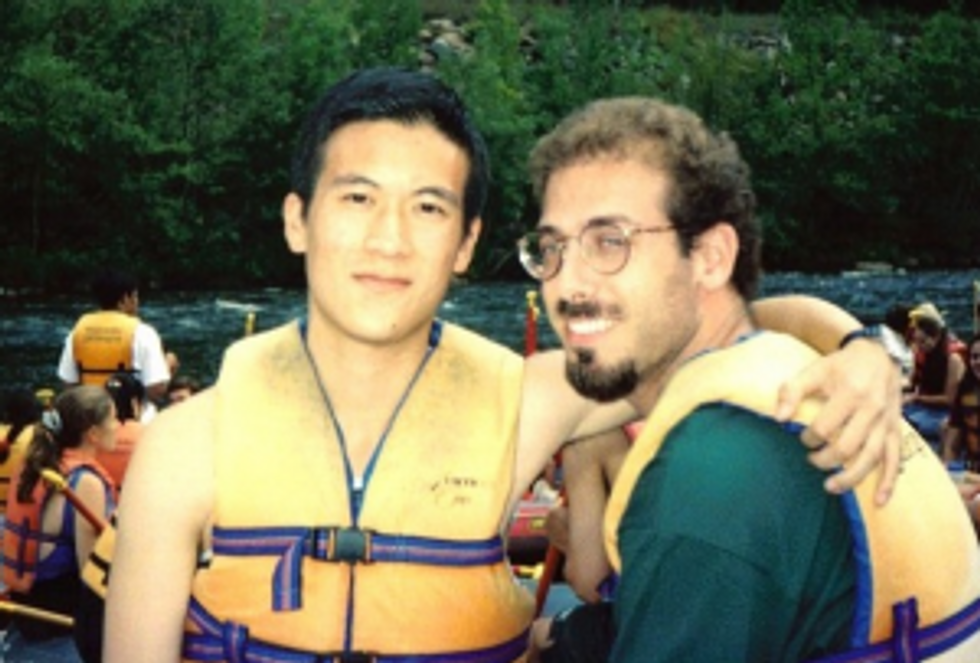
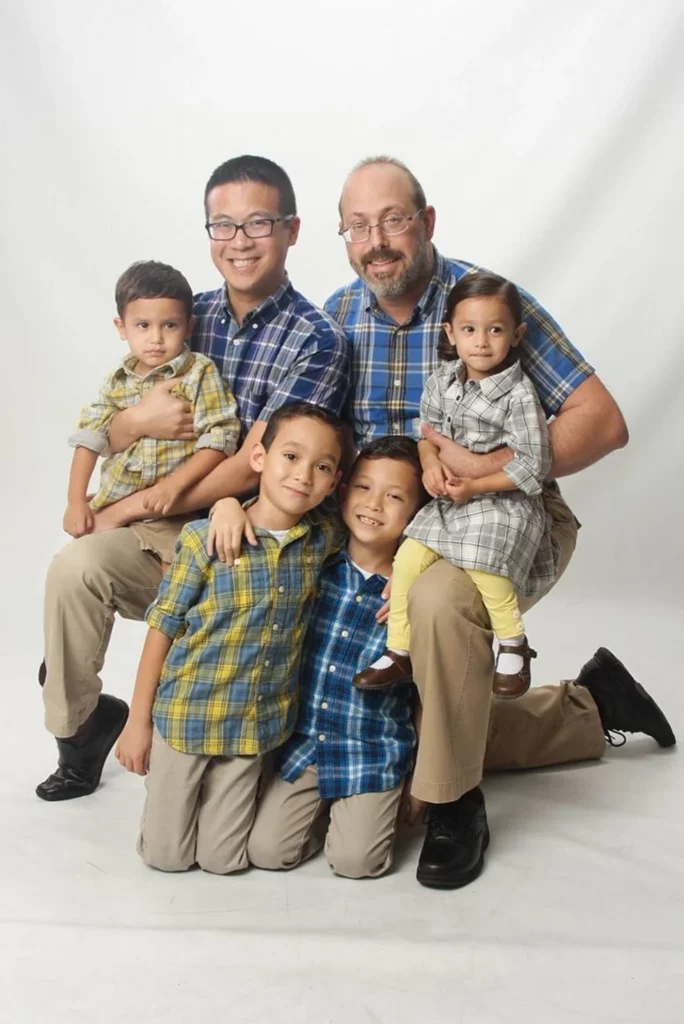
“I always wanted to be a father. But back in the early 90s, the realities were a lot different than they are today,” says Sean, a gay dad from Atlanta. “As a good Southern Baptist boy coming out, I didn’t see that as an opportunity. Part of my coming to terms experience was telling myself, ‘Not only am I gay – but I’m not going to have a family.’ But times, they have changed!”
Indeed they have. Last year, after nearly 20 years together, Sean and his husband Dan welcomed a newborn daughter into their lives through open adoption. That decision – or rather, the conversations that led to it – contributed to their late-in-relationship evolution into parents. “Sean was ready to think about adoption way earlier than I was,” admits Dan. “I was focused on biology, and felt like surrogacy was what I needed to spread my genes.” Once Dan witnessed his brother adopt a daughter, he understood what an “exceptionally wonderful experience” adoption can be, he says. But that kind of vacillation is not unusual. 43% of respondents to our survey said that one of the main reasons they waited so long to have children was “difficulty navigating the many different paths to fatherhood.”
Finance. Culture. Logistics. These are just a few of the reasons that long-term couples wait to have children. But sometimes, when you’re walking a long road, reaching your destination is that much more exciting.
Dan’s family was supportive of his coming-out, but at the time they were “only sad that I wasn’t going to make them grandparents,” he says. Years later, when he told them they were planning to adopt, he’ll never forget their reaction.
“They were gleeful. They said, ‘We had given up hope that you were going to have a family!’”
For Better or for Worse
It’s once a child arrives, of course, that the real excitement begins. The good. The bad. The covered in doo doo.
Mostly, though, it’s the good. As part of our survey, we asked long-term couples to answer two telling, open-response questions.
The first: “Compared to our lives before children, my relationship with my husband/partner is now more …”
The second: “Compared to our lives before children, my relationship with my husband/partner is now less …”
There were as many responses as there are adjectives. But across the board, dads focused on the positive. Among the typical responses: More “complete,” less “routine”; more “focused and full,” less “shallow and selfish”; more “secure and solid,” less “carefree and boring”; more “honest,” less “materialistic.”
But there was one particular area where respondents indicated an especially positive impact from parenthood: communication. Becoming fathers forces couples to become better at discussing – well, pretty much everything, from big picture values to the management of daily life. “We talk a lot more openly about our needs than we ever have before,” offered one anonymous survey respondent. “I’ve become more fearless in my effort to be up front and honest about all things with my partner,” said another.
“Adapting to an infant or toddler is all about adapting to change, and that forces you to communicate better,” elaborated Dan from Atlanta. “With 19 years behind us, we’ve been through a lot, but we have to be even more clear about everything.”
“I never thought we’d be at the level of communication we are about finances, because that’s such an uncomfortable thing,” adds his husband Sean.
“Before, we had a lot of financial independence,” says Dan. “Now we work collaboratively: keep guardrails around each other to stay on the right road. And it’s not just communication around our daughter. We have to negotiate schedules and full-time careers. We’ve had to discuss whether to forego a relocation and promotion. Sean has to tell me, and I have to allow him to tell me, that I can’t do everything I’d like. Maybe I have to disappoint a client.”
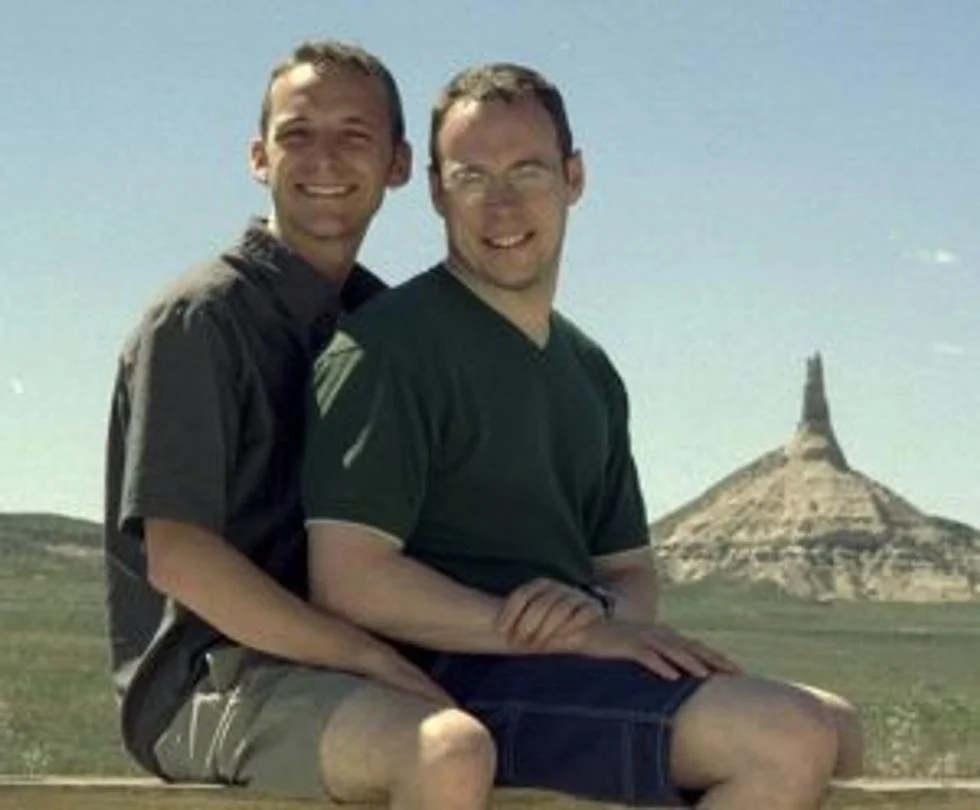
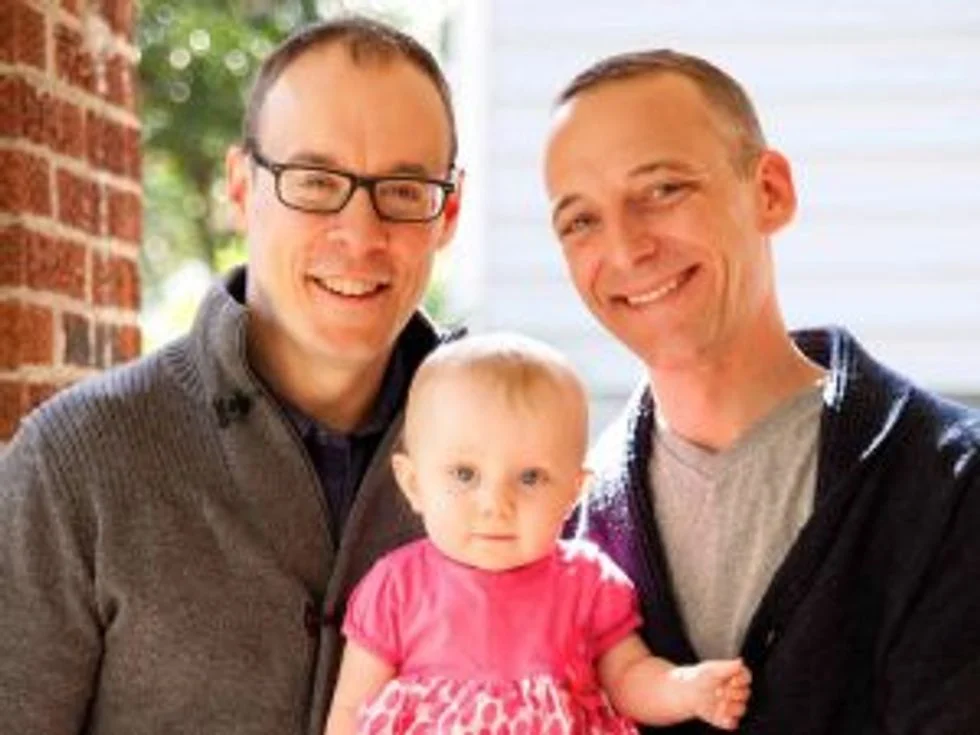
With regard to negative connotations, there were only two words that frequently recurred when respondents were asked if their relationship was “less” something: “spontaneous” and “sexual.” Our survey tended to confirm one of the most oft-cited challenges of adding a child: that parents (and yes, even gay men!) become too tired or busy for wild nights of long, torrid passion. Heck, even a quickie before bed can become a challenge.
“Without a doubt, this [sexual intimacy] is the area that is sacrificed most,” summarized one respondent. Another elaborated on the way a constantly busy life leads to less sex: “With work and home, there is never enough individual alone time. And we have to have that first before we can have ‘together’ alone time. We both need to decompress for work and sometimes family before we can engage each other.”
So here’s the good news, slightly sex-starved dads: You’re not alone. And let’s also be realistic. By the time they’ve been together for decades, most couples aren’t making like jackrabbits every night, anyway. When they do, though: fireworks.“There’s more quality than quantity,” offered one respondent. “It is less than before, but more satisfying,” claimed another. And a third: “I think we actually feel closer to each other than ever before, making our sex life more meaningful.”
And that also touches on what so many couples claim is the greatest value to having children after so many years: Being able to experience the comfort of familiarity alongside the joy of the new. When you’ve been partnered or married for years, you’re able to establish a certain foundation of trust, and a certain rhythm of relationship that – compared to more fledgling couples – can create a stronger foundation upon which to build a family. But the addition of a child also allows you to see your husband or partner inhabit a new role: dad. And that process reveals an entirely new set of characteristics to learn and love. The tough guy becomes softened. The carefree boyfriend learns to pick up the slack. And the Type A workaholic learns that – well, you can’t plan everything.
“We communicate about things we never thought we’d discuss before, and it has breathed new life into our relationship,” says Jimmy from Calgary. “Let’s face it, after being together for 20 years, you pretty much know everything about the other person. You’ve grown up together.”
“It’s not you become complacent or bored, but to be shaken up? That’s a good thing.”
And even if you need to remember to lock the doors or schedule a night ahead – the sex stuff will, eventually, sort itself out. Maybe just in unexpected ways.
“We’ve been together for nearly twenty years, yet we suddenly have a new appreciation for each other,” says David from Florida. “You might think that your partner is going to be a really good parent one day. But then you actually see him, with his shirtsleeves rolled up, knee-deep in diapers. And you’re doing it together.”
“That is attractive,” says David. “That’s sexy.”

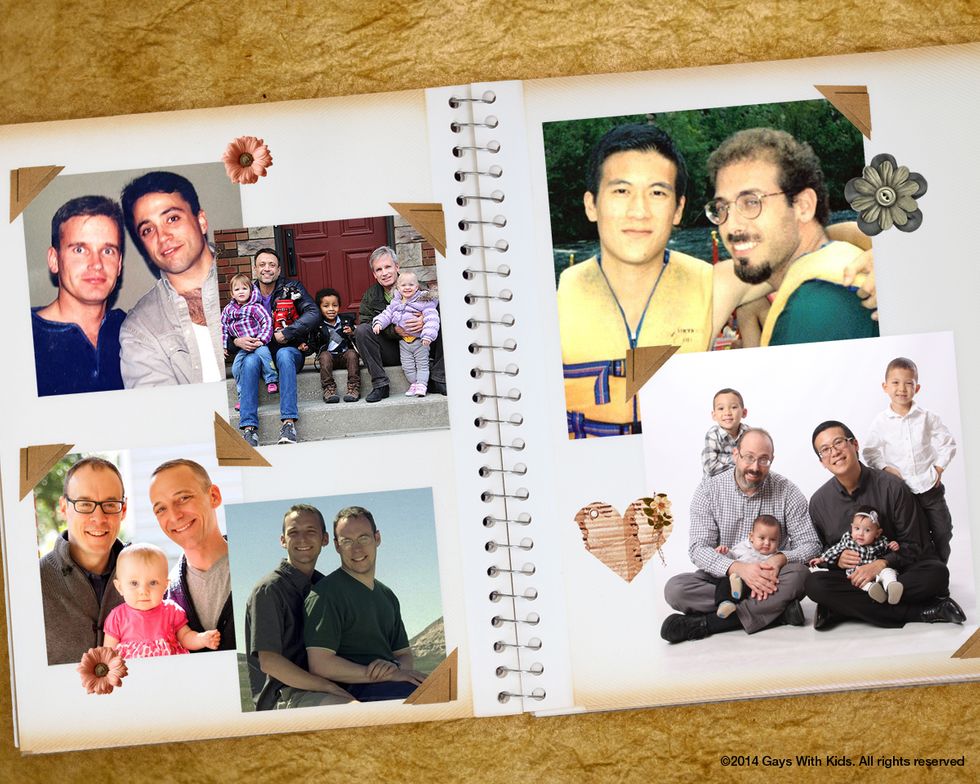



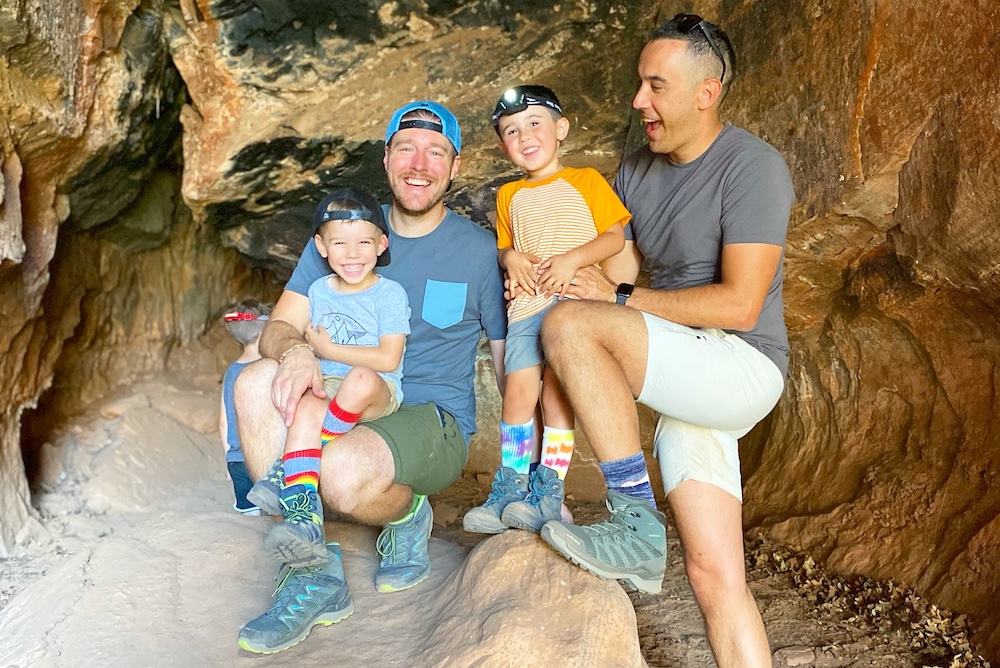
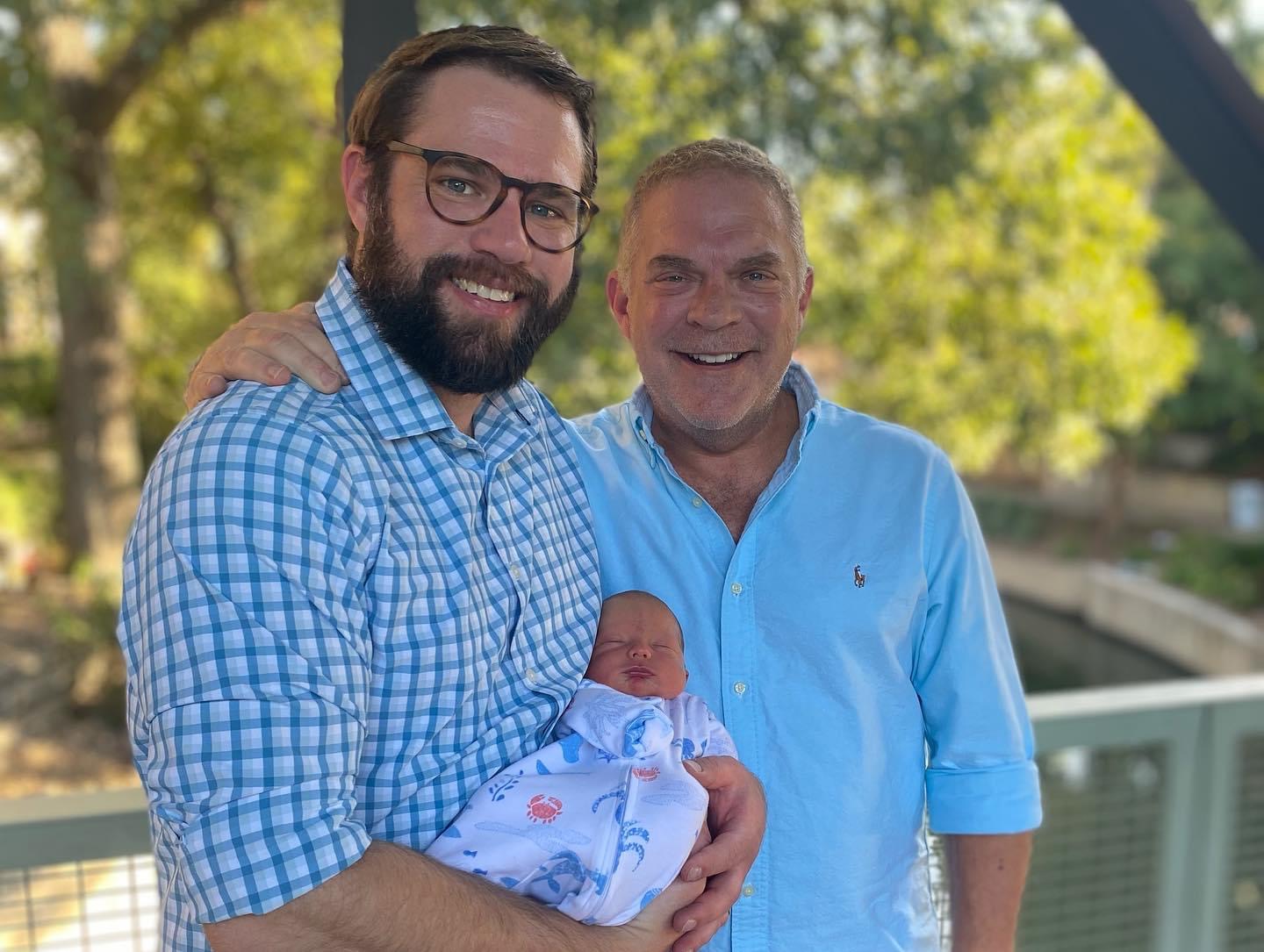
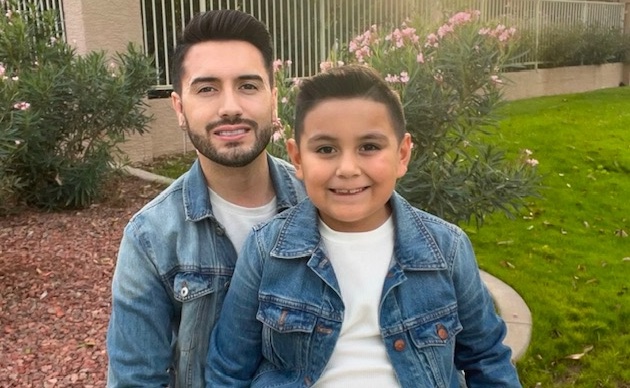
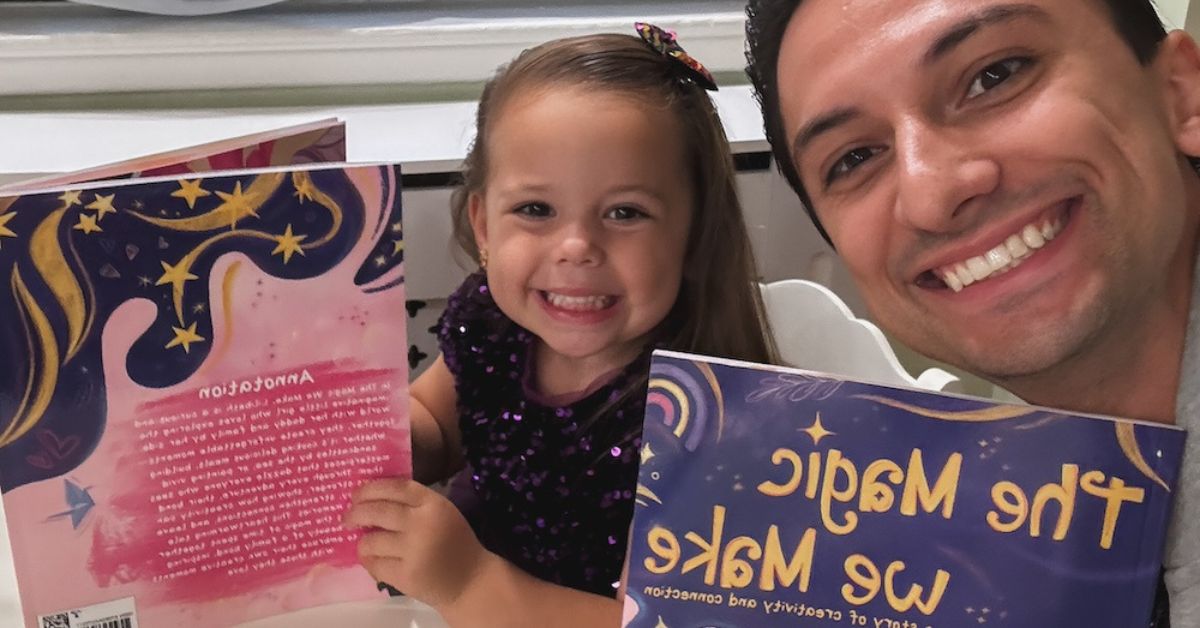

2 thoughts on “After Many Years Together, Starting a Family”
Arthur J Engler
We adopted through Connecticut’s foster care system and it was completely free! And we get a monthly stipend for each child. And our oldest is attending college on the state’s dime. Wonderful state!
March 9, 2023 at 4:42 pm
GWK Staff
So great to hear about your family’s incredibly positive experience with foster-adopt through Connecticut, Arthur! Thanks for sharing.
March 23, 2023 at 8:59 am